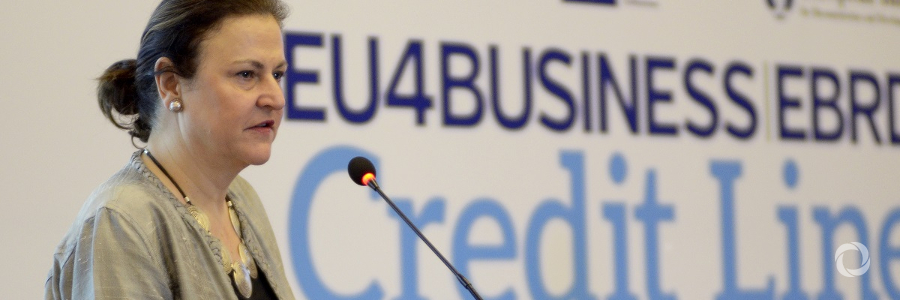Whether in restaurants, our kitchens, and bathrooms or large-scale businesses, tiles are everywhere in our daily lives. Chinese producers have discovered this opportunity and taken a significant market share in recent years. But European consumers have other options closer to home.
Keramo Rosso produces its ceramic tiles in Taraclia, southern Moldova, in a factory which employs about 150 employees. The company sells them on the local market, but also exports them – for example to a major tile chain in Romania and also to vendors in Bulgaria and Ukraine.
Export ambitions
“We started our activities over a year and a half ago, in 2016,” explained Anatolie Cristal, General Director. “We bought an inactive production facility in the free industrial zone and this helped many locals to return back to work.
“Our goal now is to grow to the next level, so we need to ensure that our products and processes meet EU standards. This will give us the possibility to export them to the EU market.”
The EBRD provides companies like Keramo Rosso with access to finance to make the necessary investments to do this – with the help of its local partner banks, in this case, Mobiasbanca.
The tile producer obtained a loan of €280,000 to modernise its equipment: it bought a new press, the Pressa Sacmi PH2800.
“The investment also boosted our production capacity. We now produce 414 000 square meters high-quality tiles per year and the new equipment will help us to increase the quantity we produce by 98 percent.
Boosting business in Georgia, Moldova, and Ukraine
Keramo Rosso was supported by the EU4Business-EBRD credit line, which was launched in Moldova in 2017. The credit line also supports businesses in Georgia and soon in Ukraine, and has helped more than 100 of them already.
Each of the three countries signed an Association Agreement with the EU, which includes the establishment of a Deep and Comprehensive Free Trade Agreement. This provides businesses with new opportunities to grow, as they will have better access to the EU, the world’s largest market.
To help them make the necessary investments to modernise equipment and processes, the EBRD provides €1.1 billion in credit lines and trade finance through local partner banks.
The EU complements these funds with €58.3 million to identify and verify the relevant improvements and train commercial partners on the new financial products.
“This is a flagship programme of the EBRD as it supports local companies in their ambition to grow, while at the same time it helps to build well-integrated, sustainable economies, fit for the future,” said Angela Sax, Head of the EBRD’s Moldova office.
“This truly is in everybody’s interest, as both local and international consumers have access to high-quality products and businesses are allowed wider opportunities to trade their goods.”
Original source: EBRD
Published on 13 June 2018

